As President Obama prepares to leave office after eight years, he delivered an emotional farewell address in his hometown Chicago. Later in the week, Obama honored his "brother" Vice President Joe Biden with the nation's highest civilian honor, the Presidential Medal of Freedom. Meanwhile incoming President Trump has promised to repeal and replace the Affordable Care Act, Obama's signature domestic achievement.
Special: Obama says farewell and awards Biden Medal of Freedom
Jan. 13, 2017 AT 9:41 p.m. EST
TRANSCRIPT
Notice: Transcripts are machine and human generated and lightly edited for accuracy. They may contain errors.
AMY WALTER: Hello. I’m Amy Walter. This is the Washington Week Extra , where we pick up online where we left off on air.
President Obama delivered an uplifting and optimistic farewell speech this week in Chicago. It was equal parts inspiration and contemplation about the past eight years in the White House. And he remained pretty cool and collected for most of the speech, but at the end he teared up when he talked about Michelle and his children. Julie, you’ve covered this White House. You also know that a good chunk of his speech he was also somewhat sober about the problems facing the country going ahead, whether it’s polarization, racial discord. Tell us a little bit about what he intended from this speech and what you think it tells us about the role he’s going to play as a former president.
JULIE HIRSCHFELD DAVIS: Well, I think he did intend it to be optimistic and to sort of have his trademark, you know, hope and democracy, and to be inspirational for people to not lose their sense of possibility even as there is anxiety about what comes after him. I think he intended it to be a little bit of credit-taking. He did cycle through some of the, you know, great things that he thinks he did – pulling the economy out of a recession, the Cuba opening, the Iran deal, sort of what he considers to be his trademark achievements. But I do think there was much more of an edge to the speech than I expected, maybe even than some of his aides expected. When you read through the transcript rather than – you know, after I watched it I read it again, and there’s a lot of – I mean, he’s actually ticking off threats to democracy, you know. And one of them is complacency and one of them is racial division and political division. But he’s really – it was – it was really – it struck me how much of a warning it was to people that – you know, one of his lines was you can’t just sit back and elect someone and then be outraged at what they do. And that really sounded like a critique of what has just transpired and sort of an attempted wake-up call to people that, you know, they really need to – if they want to see something different happen in this country, they have to be involved themselves.
MS. WALTER: So what does that mean, though, do you all think, for what role he’s going to play?
KAREN TUMULTY: That is exactly what occurred to me. He was – now, he was one of our younger presidents, which means he is now one of our younger ex-presidents, which means he’s got a lot of his life ahead of him. And a lot of those are the exact same issues in one form or another that he has promised to devote his post-presidency to as well. So he was both – he was both trying to sum up these eight years, but also lay the predicate for what he’s going to be involved in going forward.
MS. WALTER: Well, there was also another thing that happened this week as sort of a goodbye. On Thursday, the president surprised Vice President Joe Biden when he presented him with the Presidential Medal of Freedom.
PRESIDENT BARACK OBAMA: (From video.) I am pleased to award our nation’s highest civilian honor, the Presidential Medal of Freedom. (Applause.)
MS. WALTER: There wasn’t a dry eye in the White House after that moment. You saw Joe Biden going to get his handkerchief out and dab his eyes. Tears were streaming down his face as the medal was put around his neck. Michael, have we ever seen a president and a vice president have a relationship like this, the bromance as they called it?
MICHAEL CROWLEY: So I can’t be authoritative on the history of the relationships. I’ll tell you one thing that strikes me is, remember the terms that George W. Bush and Dick Cheney ended on. I mean, I think they were barely speaking to each other.
MS. WALTER: Mmm, that’s right, that’s right.
MR. CROWLEY: Very acrimonious final denouement between them, particularly over whether Bush would pardon Scooter Libby.
MANU RAJU: Clinton and Gore.
MR. CROWLEY: And Clinton and Gore, that’s right, in fact I think had kind of a shouting match.
MS. WALTER: That’s right.
MS. DAVIS: Reagan and Bush.
MR. RAJU: Reagan and Bush, yeah.
MS. DAVIS: It’s not been great. (Laughter.)
MS. WALTER: There we go. I think we answered the question.
MR. CROWLEY: OK, thank you. This little history class was good fun.
But I’ll tell you something that struck me about that, seeing that people haven’t focused on, which is Biden’s remarks about Obama after – when he takes the podium and he has the medal, and he goes on a little riff about I’ve watched this man under pressure, I’ve watched this man tested, he maybe didn’t have the biggest crises of any president – World War II, for instance – but he had these very unique crises, weird things, terrorist attacks, you know, Snowden. And he talked about what it’s like to see a man under pressure and what it brings out in him, or a woman. Of course, in the context of presidents we’re talking about men, unfortunately, only. And it just made me think about Donald Trump in those moments, under extreme pressure, and what will it reveal. And –
MS. WALTER: So you think he was saying that purposely?
MR. CROWLEY: I don’t know. But I just – that’s all I could think about, was imagining a different person standing there listening to that speech. And what will those moments bring out in Donald Trump in these wild, weird times, with terrorism and foreign governments interfering in our elections and technology in a way we don’t understand? And honestly, that’s what I took away from that sequence more than anything.
MS. WALTER: Well, and we know that Donald Trump likes Mike Pence. He tells him all the time how happy he is to be there. What role do you think Mike Pence is going to play? I assume he’s going to be the emissary to the Hill.
MR. RAJU: And he absolutely is. He’s got all the relationships up there. The Republican leadership trusts him. Actually, Mitch McConnell has asked Mike Pence to come as regularly as he can to the weekly Republican lunches every Tuesday. That’s a role that Dick Cheney had, and that’s something that Joe Biden actually did not do because Democrats didn’t want him there; they wanted to keep it separate. So he’s going to be very, very influential. Already some of his Cabinet picks – Trump Cabinet picks have been influenced by Mike Pence. So we’ll see. He could be one of the more powerful vice presidents that we’ve seen in history.
MS. WALTER: Well, we want to go to one other topic for you, Manu, because during this week’s news conference Mr. Trump signaled to congressional Republicans that Obamacare must be repealed and replaced on the same day.
PRESIDENT-ELECT DONALD TRUMP: (From video.) It’ll be repeal and replace. It will be essentially simultaneously. It will be various segments, you understand, but will most likely be on the same day or the same week – but probably the same day.
MS. WALTER: And so while Republican lawmakers are fast-tracking the repeal, is there any sense of what the replacement looks like? And we’re already starting to see a little bit of that tension between the speaker, Paul Ryan, and Donald Trump.
MR. RAJU: Yeah, because last month Paul Ryan said there will not be a replacement ready by next football season. And then last night and at a press conference this week, he said we’re going to do it simultaneously. Why? Because of the things that Donald Trump has been saying, but also pressure from the rank and file in the House and the Senate, Republicans who are getting nervous about just repealing the law, we need to have a replacement. They’re worried about taking the political hit, even if they were talking about initially of having some sort of two-, three-year transition period from the time it was repealed until the time that it was replaced. So now what they’re talking about doing sort of tactically is that they have to move through this budget process to repeal most of the law, and that is something they can do under the procedures to fast-track the repeal and avoid a Democratic filibuster under the rules. You can do it on a party-line vote. But replacing it, you can’t do a full-scale replacement under the budget rules. So what they’re talking about doing is adding some provisions of a new health care law, new health care reforms, in that repeal bill that could pass the muster of the Senate rules. So that will just be a piece-by-piece effort to replace. And then on the – side by side, issue new regulations when Tom Price, if he’s confirmed as health and human services secretary, to help deal with some of the changes that they would make from repealing the law and maybe do something else legislatively.
Now, that’s just the tactics. We’re not even talking about the policy.
MS. WALTER: (Laughs.) About the actual policy.
MR. CROWLEY: Like changing a tire. (Laughter.)
MR. RAJU: Yeah, exactly. The policy’s really what’s going to really divide them. So it’s going to be very difficult to see how this plays out. But Paul Ryan said he wants to do it in the first 100 days now, so it’s changed in his timetable because of Trump.
MS. WALTER: Because of Trump.
MS. DAVIS: Well, and I mean, we don’t know the policy. We also haven’t even mentioned the politics of that. I mean, one thing that Donald Trump has continued to do, even as he has not talked about or addressed any of the specifics of what replace would look like, he has said that he will go and campaign in the districts of the Democrats who are up for reelection in 2018 if they oppose it. So it’s like we don’t even have the bill yet; we’re already talking about campaigning against Democrats for killing it, which kind of gives you a preview of what we’re going to see here. It’s going to be repeal, do a little maybe replacement thing if we can – if we can figure out what it is. When they go to do the bigger bill, I mean, you can imagine a huge partisan clash on that. And then it’s going to be –
MS. TUMULTY: Or, counterintuitively, under that kind of pressure, it may be that the only way they can do it is to come up with something that is bipartisan and that is perhaps a little bit less of a departure from the Affordable Care Act.
MR. RAJU: And that’s what some Republicans –
MS. DAVIS: And he has also telegraphed that he won’t – (inaudible) – that.
MR. RAJU: And that’s what some Republicans fear, passing an Obamacare-lite after going through this entire exercise. So that’s one aspect of it, too. The conservative wing would not be happy with that.
MS. WALTER: So we’ll be talking about this basically for the next foreseeable future, right?
MR. RAJU: Yes.
MS. WALTER: This isn’t going away anytime soon.
All right. That’s it for this edition of Washington Week Extra . While you’re online, read about the Hollywood celebrities who have chosen to take on real-life roles as political activists. Plus, test your knowledge of current events on the Washington Week-ly News Quiz.
I’m Amy Walter. See you next time.
MOST POPULAR
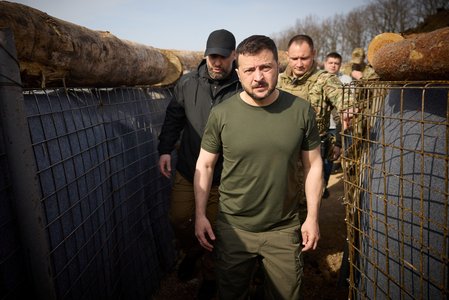
Preview: Coming Up on Washington Week with The Atlantic

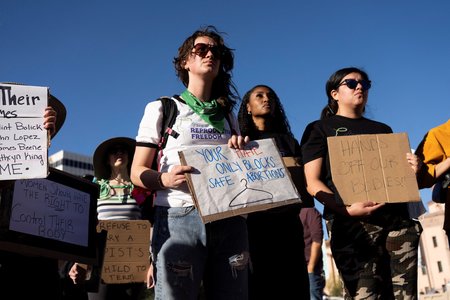
Full Episode: Washington Week with The Atlantic full episode, 4/12/24

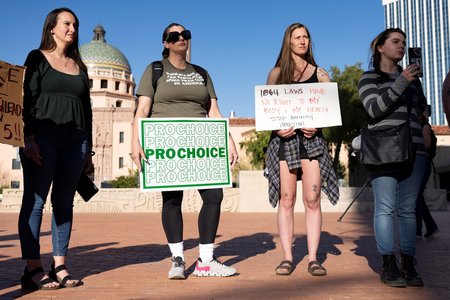
Clip: Democrats seize opportunity to make gains after Arizona abortion decision

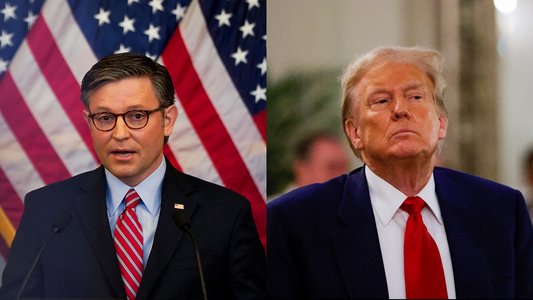
Clip: Johnson visits Mar-a-Lago to shore up support from Trump amid uncertain speakership
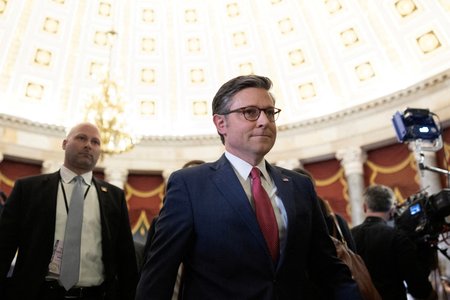
Preview: Coming Up on Washington Week with The Atlantic

© 1996 - 2024 WETA. All Rights Reserved.
PBS is a 501(c)(3) not-for-profit organization

